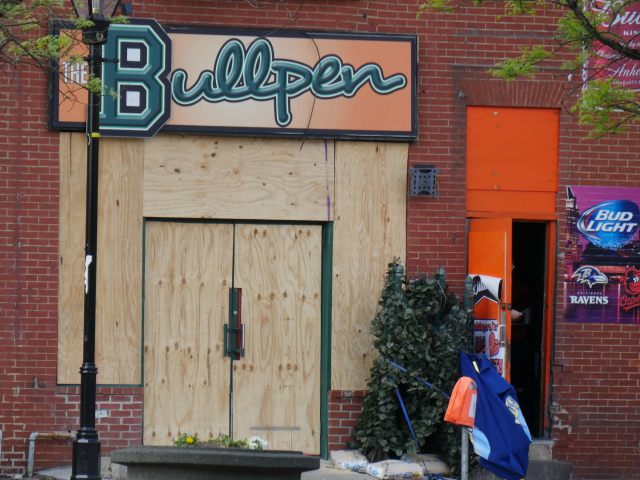Amid the recent rioting in Baltimore, apologists for the looters have attempted to justify the rampaging for it supposedly being economic in nature. To believe the defenders of the indefensible, those bent on the destruction of an already sagging city are ripping it apart due to a lack of opportunity. Perpetually stuck in poverty, the rioters are allegedly expressing their frustration about conditions they cannot escape.
Sorry, but that’s just not going to cut it.
To understand why, we need only stop to consider what is easily the purest market signal of all: where people around the world are moving, or better yet, where they would like to move. The migratory patterns of human beings are pregnant with information about where economic opportunity is, and as evidenced by abundant inflows of immigrants to the U.S. relative to tiny outflows, the United States is where poverty is cured.
If poverty were truly an inescapable fact of American life, the world’s huddled masses would have long ago ceased coming here. Interesting about the world’s ambitious who continue to make their way to the U.S., and often from desperate situations that those lucky enough to have been born in the U.S. happily can’t comprehend, many arrive here without any reasonable understanding of the English language. Despite this obvious hindrance to upward mobility in the workplace, these new arrivals still manage to make it, and do so without voicing with violent hands what they can’t express in irritated English.
For those who were born here, and who know English for having been born here, excuses are limited. Most of the world’s inhabitants would give anything to live in the U.S. precisely because it’s still the land of economic opportunity, so to excuse the revolting actions of the native-born as understandable communications of economic frustration is not credible. It’s entirely possible the Baltimore police acted in hideous fashion toward Freddie Gray, but one egregious error doesn’t justify what’s unfolding on television.
Others have blamed inequality as a significant reason for the rioting. Sure enough, the western part of Baltimore is very run down relative to much of the rest of the city, not to mention much of the rest of the United States.
The inequality argument is perhaps intriguing at first glance, but lest we forget, those are businesses that are in flames on our TVs. Inequality in any society is most often the result of entrepreneurs having met an unmet economic need of those not quite so flush. Having opened up to serve an underserved – and less equal – part of Baltimore, its residents have given those now-smoldering businesses their fists.
Perhaps more notably, out of those businesses we’re seeing thieves walking away with all manner of products that they apparently deem desirable. Many are wealthy today for having created these goods at affordable prices for residents of historically underserved areas, but after this week will those entrepreneurs continue to ship their goods to places where they’ll possibly be stolen?
What about the cellphones that the allegedly dis-possessed all seem to have in the most depressed part of Baltimore? Back in the early ‘80s only the superrich had handheld phones that were the size of a brick, had terrible reception for even local calls (it was way too expensive to call out of state), had ½ hour of battery life, and that set the rich back $3,995. Yes there’s more inequality today, and the signal that we’re more unequal in terms of wealth has to do with how many formerly luxurious baubles of the rich are now owned by Americans of all income classes. Inequality is about raising the standard of living of those not rich.
Back to the lack of local economic opportunity that supposedly justifies the grotesque, forgotten by the looter-apologists seemingly willing to excuse anything is the simple reality that there are no companies and no jobs without investment first. Applied to Baltimore, investors have a choice when they consider where to commit capital.
Along the lines of the above, capital migrates to where it’s treated well, to where it’s relatively safe, and to where demand is abundant. In the past week, investors have seen businesses burned down by the same locals intent on robbing those businesses. What this has told them is that capital is neither treated well nor is it safe in western Baltimore. Demand? One can only demand something insofar as he or she supplies something first, but as the news reports reveal, demand for some is a one-way street. Is it any wonder that the investors who create all the jobs aren’t interested in western Baltimore?
Without excusing for even a second the possibility that Baltimore police more than crossed the line with Gray, a surely loud minority of Baltimore’s population has put on a horrid show these in recent days that will rob a peaceful majority of already slim economic opportunity. Specifically, a collection of thugs has told the very investors who create all the jobs to Drop Dead.
John Tamny is editor of RealClearMarkets and author of the new book Popular Economics: What the Rolling Stones, Downton Abbey and LeBron James Can Teach You about Economics.

COMMENTS
Please let us know if you're having issues with commenting.